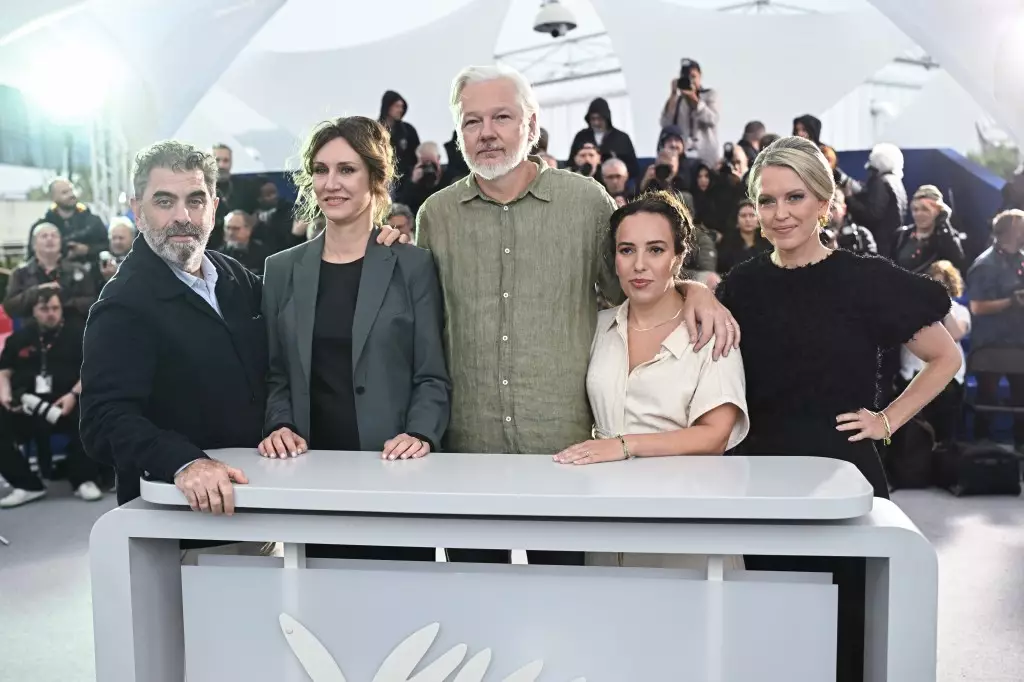In an era where transparency is often touted as a cornerstone of democratic governance, the case of Julian Assange starkly contrasts this ideal. The whistleblower website WikiLeaks, founded by Assange, has not released any original documents in over five years. While some may perceive this as a momentary lull, filmmaker Eugene Jarecki argues it signifies a profound victory for governments intent on maintaining secrecy and stifling dissent. Through his documentary *The Six Billion Dollar Man*, Jarecki meticulously details the extensive efforts made by various U.S. administrations to undermine Assange and silence WikiLeaks—an undertaking that cost American taxpayers an astonishing $6 billion.
This outrageous financial burden raises several questions about the priorities of our government. Instead of channeling resources into addressing pressing social issues like education, infrastructure, or healthcare, the federal apparatus has devoted a staggering sum to crush an individual for the “crime” of revealing uncomfortable truths. Jarecki’s assertion that this financial campaign, rather than mere legal fees, was primarily funded by leveraging an IMF loan to Ecuador adds an unsettling layer to an already convoluted narrative. The measure evokes a sense of dread about America’s long history of coercive diplomacy—where the veil of democracy is torn away by the overwhelming power of economic influence.
Collapsing Liberty: The Assault on Free Speech
The implications of Assange’s persecution extend far beyond the individual—a compelling argument against the normalization of governmental repression in the name of “national security.” To many, Assange’s decision to expose classified information wasn’t merely about information exchange; it represented a crucial stand for free speech in an age often defined by corporate and governmental surveillance. The doctrine of whistleblowing should not be framed as an act of treachery but rather as an essential exercise of accountability—yet Assange’s experience has laid bare the fragility of such principles in our current socio-political landscape.
His prolonged confinement—first in the Ecuadorian Embassy and later in a U.K. prison—highlights the continuous erosion of civil liberties under the guise of safeguarding national interests. Persecuting those who dare to challenge the status quo sends a chilling message to potential whistleblowers: the price of transparency is steep, and the odds of protection are negligible, if they exist at all. Such repression breeds a culture of self-censorship; individuals fearful of repercussions may choose silence over risk, thus allowing the democratic fabric of our society to fray.
The Irony of Democracy’s Cautionary Tale
When Assange finally appeared at the Cannes Film Festival for the premiere of *The Six Billion Dollar Man*, it appeared almost absurdly poetic. Jarecki describes this spectacle as a “victory over the U.S. government in so many ways,” albeit one underscored by the harsh realities of what Assange had endured. The irony is palpable; a man once viewed as a pariah now steps onto the global stage, showcasing the monstrous lengths to which the state has gone to silence dissent. His presence at such a prestigious venue offers both a moment of triumph and a grim reminder of the lengths required to reclaim freedom—long a staple tenet of American ideals yet so readily compromised in practice.
Winning the Special Jury Prize at Cannes serves as an indictment of those who believe that the mechanisms of oppression can be masked as “protection.” Financial clout may enable governments to dictate the terms of discourse, but cultural acknowledgment—like that which Jarecki’s documentary has received—serves to amplify the voices of the marginalized. The irony that a film aimed at spotlighting governmental malfeasance might serve as a beacon of hope reflects how art and media can spur societal reflection and, ultimately, transformation.
Grassroots Resistance Through Art and Activism
The journey of both Assange and *The Six Billion Dollar Man* showcases the critical role of grassroots movements in reclaiming space for discourse and dissent. Art in its many forms has the power to shine a light on injustices, galvanizing public sentiment and fostering change. The documentary not only seeks to hold authorities accountable but also to inspire others to push back against the politics of oppression.
While mainstream media has often shied away from his story, the resonance of Assange’s journey through films like Jarecki’s highlights an ongoing dialogue about the necessity of vigilance in preserving civil liberties. The struggle for transparency and accountability is far from over—it is deeply intertwined with the public’s right to know and understand the actions of their government. Jarecki urges us to reflect on the very essence of democracy: can it withstand the crippling cost of silence, or will we see the clenching grip of tyranny continue to envelop the pursuit of truth?


Leave a Reply